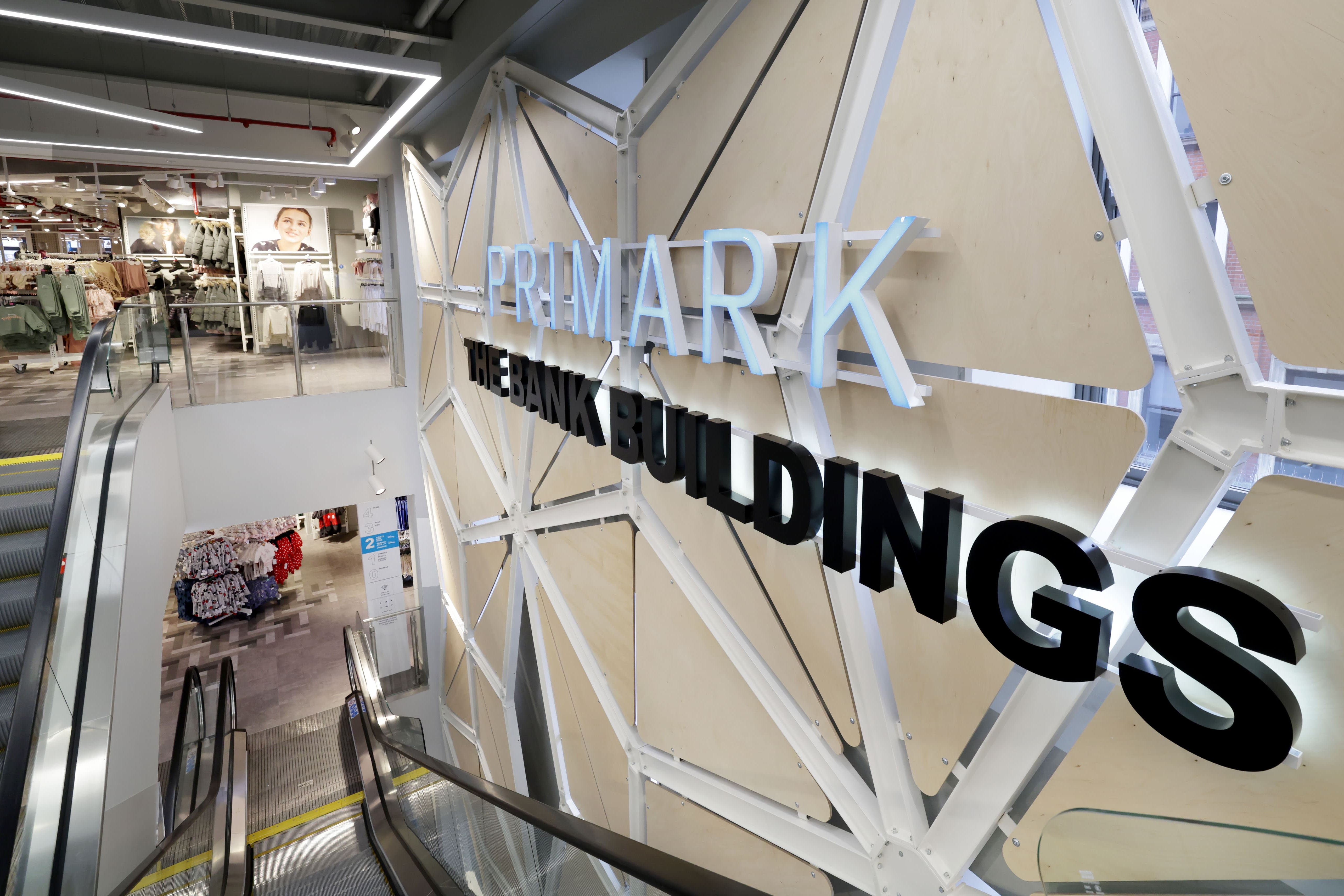Primark hopes to put pressure on rivals with price freeze pledge
The company has promised not to add any further price rises to those already announced before next year’s autumn/winter collection launches.

The boss of Primark’s parent company hopes that a promise not to announce any further price hikes before next autumn can put pressure on some of his rivals as shoppers are put under strain during the cost-of-living crisis.
George Weston said that rising prices would have been bad for both the company’s sales and its reputation.
The company has promised to not add any further price rises to those already announced before next year’s autumn/winter collection launches.
It’s a statement of reality, and maybe, just maybe, it’s no bad time to put a bit of pressure on some others that we compete with
“In a year in which it was clear that our consumers will have less money, not more, to push prices on them would a) probably be destructive of sales volume in the year, and b) would be damaging to our reputation in the long run,” Mr Weston told the PA news agency.
“It just wasn’t the right thing to do. We’re going to have these dollar rates for a couple of years, I reckon, but we’re going to have Primark, I hope, being known to be the consumer’s friend, and the best-value retailer on the high street, I hope for years to come.
“So it’s an investment in our consumers, it’s an investment in the future, it’s a statement of reality, and maybe, just maybe, it’s no bad time to put a bit of pressure on some others that we compete with.”
The business said the decision is “in the best interests of Primark”, which will support its “everyday affordability and price leadership” and help it grow market share.
However, Mr Weston said that prices have already increased by the low single percentage digits for Primark’s products. Only around 50% of products have gone up in price, and the children’s ranges have been the least impacted.
Mr Weston added: “Sales, margin and profits at Primark increased significantly as more normal customer behaviour resumed after the pandemic.
“Significant progress was made in building out Primark’s digital capability, which will be a key element in the future development of Primark.”
The business is preparing to launch trails for click-and-collect in 25 shops.
Primark like-for-like sales have broadly returned to pre-Covid levels in the UK, but remain weaker in continental Europe.
Despite rising costs, it was a good year for AB Foods – which also includes British Sugar, which makes sugar from sugar beets and grows medical cannabis.
The business said revenue jumped by more than a fifth to £17 billion in the year to September 17, as pre-tax profit increased by nearly half to £1.1 billion.
The food business is expected to grow sales significantly this year as it hikes prices for customers, and AB Foods will also bring in some extra cash from the already planned price rises at Primark.
But adjusted operating profit is expected to fall as the business faces cost increases.
It announced an 8% increase in dividends to 43.7p per share, and promised to buy back £500 million in shares from investors.
Richard Lim, boss of the Retail Economics consultancy, said: “These are impressive results against the harsh economic backdrop.
“The retailer is well-positioned to benefit from consumers who are trading down and putting lower costs at the heart of their buying decisions.
“Many shoppers are prepared to sacrifice perceived quality and the convenience of online delivery for lower costs and it’s driving people back into stores across parts of the sector.
“However, there’s a perfect storm of cost pressures facing the retailer from spiralling input and operating costs and the impact of a weaker pound and rising interest rates.”
Bookmark popover
Removed from bookmarks